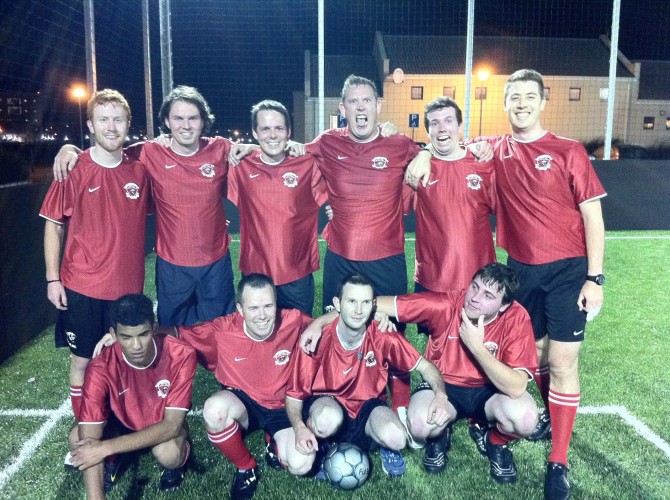Being a moderately heavy user of group-chat across distributed teams I can completely relate to the post by Jason Fried “Is group chat making you sweat?“, because he has managed to capture the frustrations, short-comings and culture expectations that we unwittingly place on ourselves when we rely on group chats as our primary form of communication. There’s a lot to digest in his review, and it’s well worth making some changes in our expectations and habits of how we use group chat.
Category: Operational Management
Building Teams in a Better Way.

Notification Detox

A couple of days back I had a catchup coffee with a long-time friend. Whilst sipping our coffee’s catching up on news since our last such meet-up he suddenly interrupts me and says “watch this” An instant later he answers a call on what I can only describe as a the closest phone I’ve seen resembling a Nokia 3310 in many a moon. It didn’t have an immediate impact on me, but a couple of days later I suddenly caught myself day-dreaming about this event – was he really onto something? He’s magic combination was this “Nokia 3310” together with an iPad Mini (GSM). The phone he keeps ever present in all activities, but the iPad is only around when he has bags to carry it.
Whether by accident, or pure genius I decided this form of hardcore separation may have its merits. A form of notification detox. This impacted me to such an extent that I have purchased my own beloved Nokia 130, capable of making calls, sending and receiving SMS messages, and very little else. No beeps and no flashing to inform me that someone who could have done something or that something is apparently so important that I need to know about immediately. No, in fact a whole lot less noise and a tremendous scaling back on disruptions during the day is what I’ve experienced, delightful!
Some other interesting reading on a related topic is definitely The Information Diet by Clay Johnson.
Unlocking the value of people

As a friend of mine recently started working for Automattic my attention has been refocused on the importance of people within organisations. Its more than the superficial discussions about whether we call people “human resources” or “people”. What is required is a fundamental shift in thinking of how we view the people we need in our teams.
More and more I’m made aware of a sub-culture that is developing in companies; companies that really care about their people. The primary method this can be measured by is how much (or more accurately how little) they try control their people. The manifestations can be seen in a wide array of “policies” such as remote teams, open working hours, respecting of personal and family time, and the valuing of personal needs. And the result you may ask? Happy, hard-working employees that are uber-evangelists of their companies. Sounds like a win-win to me.
These companies are placing a high value on excellence and skills required to perform roles, as well as an extremely high value on cultural fit. These companies are recruiting a person, not a role. They are consciously taking the time and effort to ensure that every person they hire is going to add a forward momentum to their existing ethos. I guess the most appropriate metaphor here is that of making scrambled eggs, it simply takes 1 off egg to spoil the whole batch; so take your time adding each egg.
I love the way that Automattic re-name their roles to describe the core function they are looking to fulfil. I think that the guys at Method were spot on when the created a “complex” interview process to see who the person is that they are interviewing through a case-study approach.
A key resource I keep falling back on is the great talk/book by Dan Pink – Drive, where Dan proposes that one of the major people management areas we are failing in is that of outdated motivators. Typically these motivators are all about financial incentives, that Dan notes, do little for most of the knowledge work that is performed today. Our outlook and implementation of these motivators will give us a good evaluation of how we truly view our employees.
Strategic Project Success Rates – A road to nowhere?

Just over two years into an MBA you start to ask yourself questions, is this worth all the effort? Perhaps a masters in cooking would be easier and more lucrative. Business management is difficult! As I review the question “why are over 50% of all strategic projects failing?” I’ve hit a blank, are the strategic project success rates simply a road to nowhere? And endless pit of change with no mastery, no long-term success, no sustainable adding of value to organisation?
I encounter theory after theory, model after model and clever answers that could fill entire libraries. The challenge is; with all these clever answers around, why is the track record of strategic projects so poor? Success statistics from the invention of the modern day project (in the early 1960’s ) tell the same sad story, half of projects attempted fail (and are still failing). What are we missing?
Today project and product education is at an all time time high, you find hundreds of books on expert strategic management and how to tame the proverbial project dragon, yet in the cold light of day, all this has affected the project success rate with exactly naught %. Do we continue along the same vein, introducing more and more processes, more and more education, more and more roles and responsibilities?
As we stand today, the primary method organisations deliver their strategies are through projects, perhaps its time to reconsider. We need to take a sober look at our project execution process and frameworks, not to try another ‘expert theory’ but rather to take onboard some of the knowledge and practical know-how that is being shared by our teams around the coffee pauses area’s and lunch rooms.
A rising economic tide: It’s time to have a positive focus

Positive Focus is what we need in a time of economic challenge. All indications are that there is tremendous pressure on the global economy. This is true unless you live in the USA of course, where the economic spinsters are able to camouflage the frail situation. The mood of the economic powerhouses in turn ripple down to the local organisations, who then logically start a process of contracting spending to protect their profits and minimise risk. This can often result in the adoption of a negative mindset towards growth, innovation and positive people management. Out come the old sticks and the old habits! It is easy to slip into controlling management, emotionless-engagement and to simply start counting our customers as numbers. What’s needed however is focus, not any focus, but positive focus.
In these tough times we have the opportunity to challenge the status quo of process, norms and what has ‘always been’. If the need (and it is a need) is to move into measures of austerity then lets take a “post-war” or “post-depression” view on our organisations.
How we can have a Positive Focus:
- Eliminate waste. A ruthless focus towards waste within our organisations. The removal of waste in all aspects of resources, people (talent or time) and technology.
- Identify our strengths. This is a perfect time to reflect on what the organisation is good at, what it’s people are good at, and what our customers love about us the most. This is the sweet-spot we should focus on. Cut the rest, mercilessly.
- Invest. The greatest winners during tough economic times are those that invest with the future in mind. Protect your assets (again relating to people, process and technology), or simply put, the things that truly create value for your organisation.
These are simple steps but they are by no means easy; at best the are counter-intuitive; but the best companies never really follow the common actions of others.